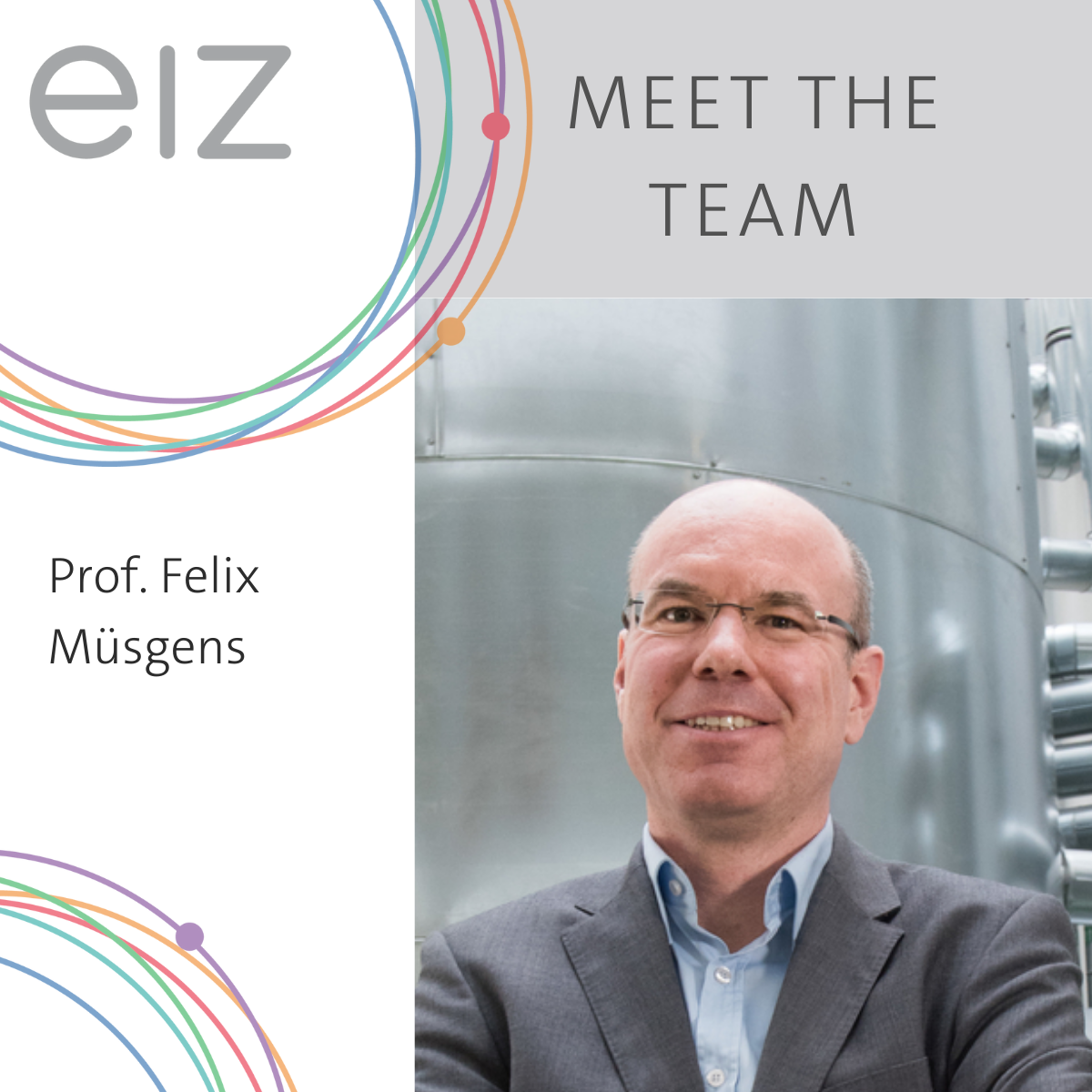Meet the Team | Prof. Felix Müsgens
Your dedication and involvement was crucial in the foundation of the Energy Innovation Centre – what motivated you, what was your vision for the EIZ?
My motivation for the Energy Innovation Centre stems from the conviction that we need to actively shape change in the Energy Economics – with innovative solutions, interdisciplinary research and a strong network of science, economy and politics. The BTU is located in a region that is traditionally characterised by lignite. It is precisely here that we must show that structural transformation is an opportunity, not just a challenge. The Energy Innovation Centre should be a place where theory and practice meet. Here, researchers, companies and political players will work together to shape a climate-neutral energy future. It is particularly important to me that we conduct both academic research and develop concrete solutions for practical application. At the same time, the EIZ aims to fund young talent. Young scientists should have the opportunity to work on the pressing issues of the energy transition and to network – both with other researchers and with companies.
What role do you see the EIZ playing in the energy transition in the long term and specifically for Lusatia?
The EIZ is a bridge between research and practice. We develop new technologies here, which we then test in our laboratories and in the field and ultimately bring to market maturity. We need holistic solutions: the electricity sector should be integrated with heat, mobility and industrial processes. In the long term, I see the EIZ as a driver of innovation for climate-neutral energy supply, helping to make technologies economically viable and socially acceptable. In Lusatia, the EIZ is a key player in energy research. On the one hand, the centre can help to create new economic prospects by offering highly qualified jobs in future technologies. On the other hand, Lusatia can become a model region for the energy transition.
Lusatia is undergoing change. What is your personal vision for Lusatia 2050, what do you wish for the future development of this region?
I would like to see a region in which Energy Economics will still play a major role in 2050, supported by outstanding energy research at BTU. I would like to see optimism on the way there. Not to wait for the state or anyone else, but to tackle it ourselves and take responsibility for shaping the future! My vision for Lusatia in 2050 is that it will have developed from a traditional energy region into a leading European innovation region for sustainable energy solutions. Lusatia has the potential to become a pioneer for climate-neutral industry, smart energy grids and innovative storage technologies.
What makes working at BTU special for you?
Essentially, I have three tasks as a professor: Teaching, gaining theoretical knowledge in science and gaining practical knowledge for companies. All three are great fun. Guiding young people through their studies and doctoral studies is sometimes hard work – but always a pleasure. Pushing the boundaries of science outwards and sharing this with the community in scientific contributions is not only exciting, but also facilitates global contacts that are personally and professionally enriching. I've also always enjoyed the practical implementation in companies, which is why I first worked in energy trading after my doctoral studies and later started my own companies.
What are your personal highlights in Cottbus? What should people definitely try out when they're here?
There's a lot – from culture in the State Theatre to sport (active swimming in the lagoon, passive swimming in the Energie Stadium) to enjoying cold drinks on the Altmarkt in summer. A visit to one of the open-cast lignite mines in Lusatia or the emerging lake landscapes (Baltic Sea!) is also highly recommended to experience the transformation of the region at first hand. Finally, the Branitz Park – a unique work of garden art by Prince Pückler – is also a great place to relax. The famous pyramids in the centre of the park are absolutely worth seeing, and a walk there is recommended at any time of year.
Prof. Felix Müsgens is one of the two scientific directors of the EIZ at BTU Cottbus-Senftenberg and holds the Chair of Energy Economics, whose key research areas include Energy Economics, Energy Data Analytics and Energy System Modelling. He works with industrial companies, energy suppliers, associations and ministries on applied and theoretical research projects. He is a member of numerous committees (e.g. Scientific Advisory and Project Advisory Board of 50Hertz) and an associated researcher at the EPRG (University of Cambridge) and in the RWI Research Network. From 2019 to 2021, he served as an elected scientific representative on the Exchange Council of the European Energy Exchange (EEX) Agency. He headed the working group on electricity market design in the ESYS academy project. Prof. Müsgens completed his doctorate at the Institute for Energy Economics (EWI) and the DFG Graduate College Risk Management at the University of Cologne. He has extensive industry experience as head of the portfolio management team at Trianel and as founder of the management consultancy r2b energy consulting GmbH and the subsidiary solarea GmbH, which identifies areas for renewable projects and takes care of authorisation procedures.

